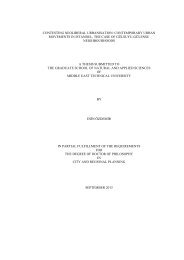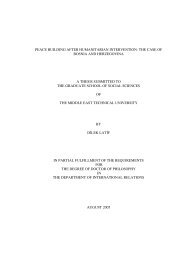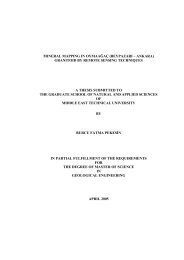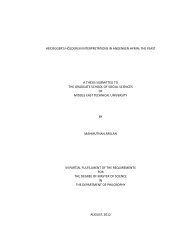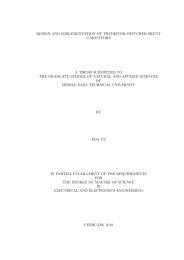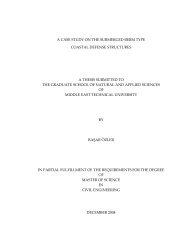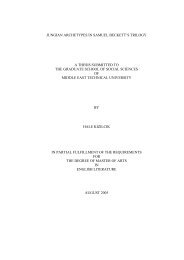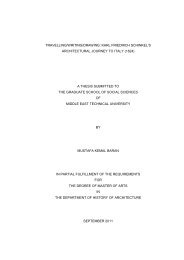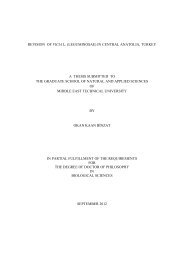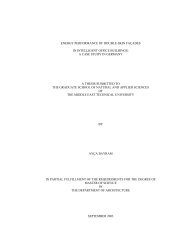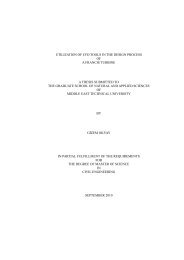View Original - Middle East Technical University
View Original - Middle East Technical University
View Original - Middle East Technical University
Create successful ePaper yourself
Turn your PDF publications into a flip-book with our unique Google optimized e-Paper software.
Value concept in Marx is, of course, a prolegomenon to his analysis of capital, the<br />
circuit of capital as the circuit of self-valorisation (production and realisation of<br />
surplus-value) as well as, as Harvey and many others imbibe, a theory of crisis.<br />
Although Harvey, not unlike Postone, lingers on the value concept, abstract labour<br />
and other ‘concrete concepts’ of the capitalist commodity production with ardent<br />
acuteness, real abstraction is at best subtextual throughout his analysis. He, at one<br />
time, notes that ‘labour in the abstract is a distillation’(1982:15). However, from here<br />
onwards, an understanding of money as real abstraction is more seminal to Harvey’s<br />
materialism than the abstract temporality of labour. Money, succinctly, is the<br />
phenomenal form socially necessary for the abstraction abstract labour processually<br />
is; that is, thorough some money commodity or money form alone, commodity values<br />
are materially abstractable.<br />
For Harvey, it is because accumulation of capital is about the ongoingness of<br />
valorisation that there can already be some vestige of a stillness of capital and the<br />
putative strife that would stem from the systematic stymieing of an otherwise<br />
continuious phenomenon. In other words, capital is productive, commodity and<br />
money capital as long as it can be briefly still. To that effect, accumulation is not<br />
realistically continuious but foremost technically continuious; turnover of capital must<br />
anticipate caesurae in valorisation. Into those brief segments of time at which capital<br />
is at a standstill that one must first reconnoiter for some devalorising concequences<br />
that are technically part of the overall system of valorisation whose whole imperative<br />
nevertheless is that it be ever recurrently continuious. Thereby, when capital is<br />
dormant, it is ‘devalued capital’. This said, for Harvey, concept of devaluation in<br />
itself is a foundation solely for the possibility of crisis(1982:195).<br />
Possibility of crisis is not a conceptual equivocation. In fact, Marx’s thoughts on the<br />
possibility of crisis are single-handedly the fuse behind much of the crisis-centrism in<br />
Marxist political economy. Here Marx abjures the Ricardian thought –each sale is<br />
immediately a purchase; that there cannot be an overproduction of commodities. This<br />
38



